
Swiss Recruitment Market: Outlook for 2025
CH Country Director, John Byrne, gives an overview of the Swiss recruitment market and EMEA Recruitment's activities in 2024, along with our predictions for 2025.
Over the past year, EMEA Recruitment has partnered with clients to navigate the toughest market conditions since the pandemic. Looking ahead to 2025, we anticipate steady growth in Switzerland.
We have worked closely with our clients to navigate 2024 with resilience and strategic adaptability, despite global economic uncertainties such as fluctuating global markets, a strong Swiss franc, and ongoing geopolitical tensions.
2024 overview
2024 started with the continuation of our clients adopting flexible work arrangements and upskilling initiatives to attract and retain talent, reflecting a shift toward employee-centric recruitment strategies.
However, the second half of the year challenged this, with a few businesses looking to establish a stronger presence in the office. We oversaw a number of projects offering market consensuses for our clients to identify the right balance for them and expect this to be an ongoing theme into the New Year and beyond.
Did your business change its flexible work arrangements in 2024? Our recruitment team would be happy to discuss the market’s holistic stance for insights.
Tech & Transformation
The demand for our services remained robust across key sectors like technology and life sciences, and among a host of newly settled businesses establishing themselves here, driven by Switzerland's continued reputation as a hub for innovation and global business.
We continued to invest heavily in our Tech & Transformation division, focused on senior leadership roles, as the demand for talent increases across sustainability and digital transformation. We’re also seeing new roles in green energy, AI, and data analytics.
Outlook for 2025
Looking ahead, the outlook is cautiously optimistic. Despite global economic uncertainties, Switzerland's low unemployment rate and stable economy continue to provide a solid foundation for the recruitment market.
Our indications suggest that the market is poised for steady growth, with opportunities continuing in newly settled businesses and emerging industries (including AI, biotechnology, and sustainability initiatives).
These factors signal optimism for both candidates and clients alike in 2025. If you need our support in your own career or within your current team, please get in touch and I will connect you with the right expert: [email protected]

Talent Strategies for a Changing Economy in the Nordics – Key Insights for Q4 2024
Hanna Gibson, Senior Consultant in our Nordics recruitment division, reflects on the Finance & Accounting recruitment market during Q3 and shed's light on key trends shaping the region progressing into Q4.
As we progress into the final quarter of 2024, one key trend in the Nordics is the rising importance of cross-functional skills, especially in Finance.
With companies striving to streamline operations, Finance professionals are now playing more strategic roles. CFOs are increasingly seeking candidates who can provide data-driven insights, not just for financial planning, but also for broader business strategies.
Reflecting on Q3 2024
Q3 highlighted the growing demand for Finance professionals who can contribute beyond traditional roles. Companies in the Nordics are increasingly seeking individuals with a strong blend of financial expertise and strategic acumen.
This quarter also saw digital transformation take center stage, with AI-driven forecasting, automation, and advanced analytics becoming essential tools. According to the World Economic Forum, over 40% of Nordic businesses are investing in digital Finance tools, significantly increasing the demand for tech-savvy professionals to lead these initiatives.
November is a Crucial Time to Secure Top Talent
With 2025 plans being finalized, competition for top talent is intensifying. November presents a valuable opportunity to engage with professionals looking to make strategic career moves before the new fiscal year begins.
For industries already facing talent shortages - especially in Finance and Accounting - delaying until 2025 could put you at a disadvantage.
Preparing for 2025 Success
Q4 isn’t just a time for reflection; it’s a time for action. Aligning your talent strategy with future demands is key.
EMEA Recruitment is here to help you stay ahead of the curve, ensuring you have the expertise to drive your business forward into 2025. Contact us today to find out how we can support your recruitment needs and help you secure top talent before the competition.

The Future of Talent Acquisition: Balancing AI and Human Connection
There is much discussion about how automation will impact the HR function, with organisations at varying stages of adapting and capitalising on its benefits.
Last month, we turned our attention to how AI may affect Talent Acquisition and we welcomed TA Leader Douwe van der Leer to share his views at our TA networking event in Amsterdam.
Key takeaways from the session included the need for TA professionals to evolve into Talent Strategists. As automation reduces transactional tasks, Recruiters must use the additional capacity to deepen their understanding of the organisation and its business goals.
They’ll need to partner with business leaders and engage in detailed discussions around the future skills required to ensure organisational success, as well as strategies for effectively connecting with this talent.
The companies that will win the competition for top talent will be those that implement seamless automation, punctuated by highly personalised, human-centred interactions.
TA teams may become leaner as recruitment responsibility is shifted to hiring managers to run automated processes. Alternatively, they may evolve to encompass a more integrated approach to talent, including Onboarding, Talent Mobility, Internal Hiring programs, and Learning & Development - something we're already witnessing with several of our international clients.
Another interesting idea is the return of the ‘hidden talent market’. As individuals increasingly choose not to engage with messages on traditional platforms like LinkedIn, where many interactions will become automated, could we see a return of the old-style head hunter? These professionals were successful due to the strength of their network and their ability to engage with talent in more creative ways.
However, as the function evolves, those who do not embrace the benefits of AI whilst understanding where human connection can make a difference will surely find themselves left behind.
If you’re interested in discussing how your organisation can effectively navigate these changes in Talent Acquisition or if you’d like to share your own insights, please don't hesitate to reach out to Katie Insley, Director in our HR recruitment team in the Netherlands: [email protected]

Digital Transformation in Switzerland: EMEA Recruitment’s Approach to Leadership and Tech Talent
In today’s fast-paced business landscape, the ability to adapt to digital disruption is essential for growth and sustainability. Every month, EMEA Recruitment connects with hundreds of diverse individuals across our established and expanding network who share market changes, challenges, and innovative digital strategies.
Having understood the critical role that technology plays in transforming modern businesses that are facing digital disruption, we continue to receive enquiries from new areas of our network. Our Technology & Transformation recruitment division was created to handle such enquiries, as this area touches so many different disciplines within business.
The Demand for Leadership Skills
Whether it is true transformation to take advantage of market growth or to readjust for industry pressures, we have witnessed an upwards trend in demand for leadership skills experienced with guiding teams through this.
EMEA Recruitment has partnered with several Swiss-based entities to source skilled professionals who excel not only in cutting-edge technologies, but who also bring the essential strategic acumen and leadership skills necessary to implement meaningful large-scale change.
This highly tailored, “people first” approach has been of particular value to clients in a rapidly shifting market. Often, the softer side of leadership can be overlooked when change is needed, but the best change programmes are those that align with these skills to deliver successful, long-term results.
Your requirements
If your business is searching for evolving skillsets, such as data science and analysis, systems architecture and development, and/or technologies including AI, blockchain and the IoT, to strengthen your market position, then we’d be happy to discuss your requirements.
Many of the candidates we now represent are adept in leading complex transformation projects, ensuring seamless transitions and delivering successful outcomes. Please reach out to our Country Director, John Byrne, who will be happy to help: [email protected]

The Strategic Importance of Procurement & Supply Chain Functions
Over the summer, EMEA Recruitment has been evaluating the role of Procurement and Supply Chain functions within businesses. Given the significant impact of global events in recent years, the importance of these functions has never been greater. It’s unsurprising that many companies have completed or are undergoing transformation projects to ensure "best-in-class" service delivery in an increasingly AI-driven world.
Effective Procurement and Supply Chain teams go beyond cost-cutting; they create substantial value and resilience within a company. By strategically managing resources, assessing risks, and prioritising sustainable practices, they ensure that business operations are not only efficient but also prepared for future challenges. This added value extends to areas such as:
- Achieving financial and value targets
- Meeting sustainability goals
- Evaluating suppliers to safeguard the employer's brand
- Ensuring business continuity
- Minimising business risks
- Improving customer satisfaction
Companies that have elevated their Procurement and Supply Chain functions and integrated them across the business are significantly more attractive to candidates seeking their next career opportunity.
If your organisation seeks to strengthen its Procurement & Supply Chain team, EMEA Recruitment is here to help. Our specialists focus on sourcing the right professionals to meet your business's strategic goals. Get in touch with Mark Robinson to discuss your recruitment needs and connect with candidates who can drive your company’s success: [email protected]
Alternatively, if you are searching for your next procurement or supply chain job, speak with one of our recruitment consultants who can help you advance your career in your preferred region, or visit our job search page.

Buoyant Swiss Employment Rate Has Limited Impact on HR Function
Despite the encouraging increase and promising uptick in the Swiss employment rate, the impact on HR jobs is expected to be gradual, learn why here.
The Swiss employment landscape is showing a promising uptick, with employment levels rising by 1.8% from last, signalling a robust economy and positive business sentiments. Despite this encouraging increase, the impact on HR jobs in Switzerland is expected to be gradual due to the function experiencing stabilisation rather than immediate expansion: while companies are hiring, the demand for HR professionals is disproportionally low. Reasons include advancements in HR technology that streamline processes and reduce the need for additional personnel, and the strategic shift from transactional tasks to more consultative and strategic functions.
The gradual impact of the overall employment rate increase on Swiss HR roles illustrates a shift towards a more strategic and specialised approach in HR functions, highlighting the critical role HR professionals play in aligning talent acquisition with the long-term objectives of their organisations. Rather than focusing on volume hiring, HR professionals are increasingly required to bring a deep understanding of their wider industry.
Moreover, the way in which roles are being filled illustrates another critical dynamic: many positions managed by EMEA Recruitment are confidential, under a retained mandate. Senior and specialised, these searches require a discreet and strategic approach, as confidentiality is paramount to avoid disruption within the organisation and/or the broader market.
Retained mandates reflect a long-term commitment between EMEA Recruitment and our clients, where we combine data-driven market insights with a thorough and dedicated search process. A comprehensive understanding of our client’s culture, needs and long-term goals is paramount; the growth in such engagements further underscores the strategic evolution of HR roles.
If you would like to learn more about our insight tools and confidential, retained recruitment services - or you’re looking for support in your search for a new role, please don't hesitate to get in touch.

EMEA podcasts
The EMEA Recruitment podcast welcomes guests from across our network and beyond to share their career journeys, advice, and inspirational stories.





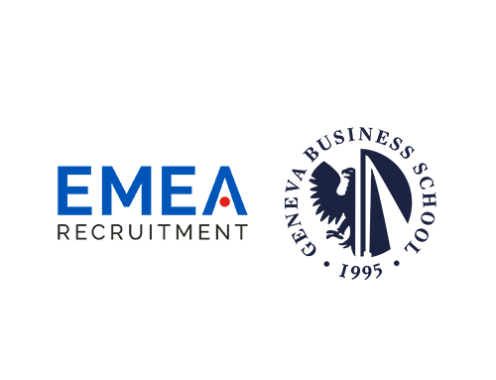

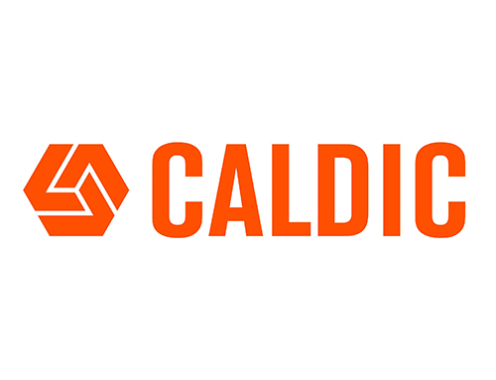










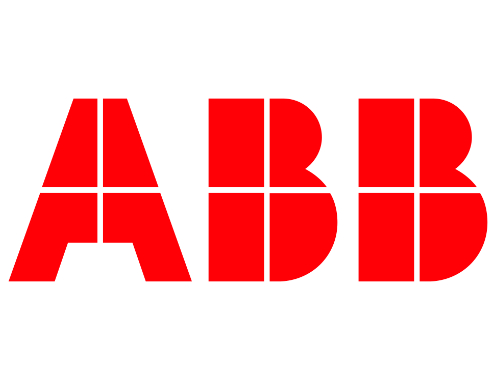
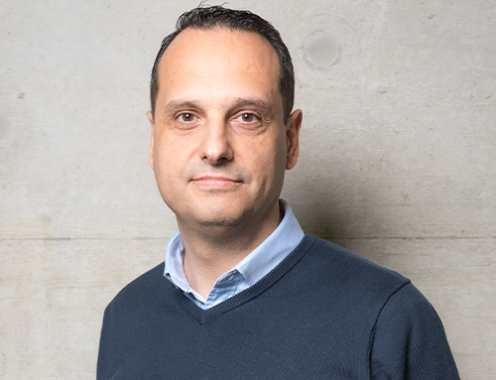
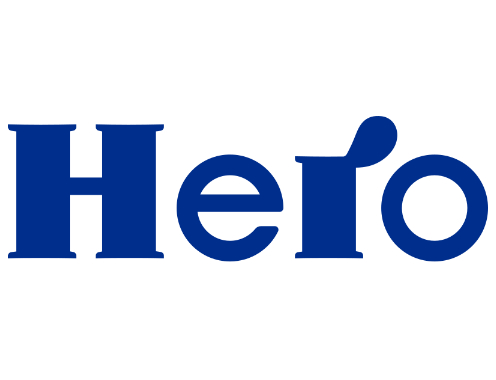


You can also use your social account to sign in. First you need to:
Accept Terms & Conditions And Privacy Policy